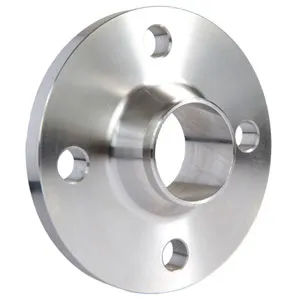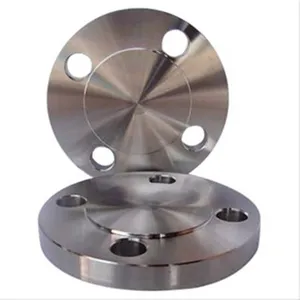-
Cangzhou Yulong Steel Co., Ltd.
-
Phone:
+86 13303177267 -
Email:
admin@ylsteelfittings.com
- English
- Arabic
- Italian
- Spanish
- Portuguese
- German
- kazakh
- Persian
- Greek
- French
- Russian
- Polish
- Thai
- Indonesian
- Vietnamese
- Zulu
- Korean
- Uzbek
- Hindi
- Serbian
- Malay
- Ukrainian
- Gujarati
- Haitian Creole
- hausa
- hawaiian
- Hebrew
- Miao
- Hungarian
- Icelandic
- igbo
- irish
- Japanese
- Javanese
- Kannada
- Khmer
- Rwandese
- Afrikaans
- Albanian
- Amharic
- Armenian
- Azerbaijani
- Basque
- Belarusian
- Bengali
- Bosnian
- Bulgarian
- Catalan
- Cebuano
- China
- China (Taiwan)
- Corsican
- Croatian
- Czech
- Danish
- Esperanto
- Estonian
- Finnish
- Frisian
- Galician
- Georgian
- Kurdish
- Kyrgyz
- Lao
- Latin
- Latvian
- Lithuanian
- Luxembourgish
- Macedonian
- Malgashi
- Malayalam
- Maltese
- Maori
- Marathi
- Mongolian
- Myanmar
- Nepali
- Norwegian
- Norwegian
- Occitan
- Pashto
- Dutch
- Punjabi
- Romanian
- Samoan
- Scottish Gaelic
- Sesotho
- Shona
- Sindhi
- Sinhala
- Slovak
- Slovenian
- Somali
- Sundanese
- Swahili
- Swedish
- Tagalog
- Tajik
- Tamil
- Tatar
- Telugu
- Turkish
- Turkmen
- Urdu
- Uighur
- Welsh
- Bantu
- Yiddish
- Yoruba

Dec . 05, 2024 09:33 Back to list
GOST Flanges in the Oil and Gas Industry: Role and Applications
GOST flanges are widely used in the oil and gas industry, where reliability, durability, and safety are paramount. These flanges, governed by Russian state standards (GOST), play a critical role in ensuring secure, leak-free connections across a variety of pipeline systems. In this article, we will explore the role of GOST flanges in the oil and gas sector, their applications, and why they are considered a preferred solution in many regions, especially in Eastern Europe and former Soviet states.

The Importance of Flanges in Oil and Gas Infrastructure
Flanges are essential components in the oil and gas industry, primarily used to connect pipes, valves, pumps, and other equipment. They provide a robust, leak-proof joint that allows for the efficient transportation of crude oil, natural gas, and other fluids under high pressure. Flanges are designed to withstand extreme conditions, including high temperatures, corrosion, and the constant stress of operational pipelines. GOST flanges, adhering to Russian industry standards, are specifically designed to meet these demands and are frequently chosen for their reliability and compatibility with systems used in oil and gas extraction, transportation, and processing.
GOST Flange Specifications for Oil and Gas Systems
GOST flanges are available in various pressure ratings and sizes, making them versatile for a wide range of applications. The most common pressure classes for GOST flanges used in the oil and gas industry are PN6, PN10, and PN16, which denote their ability to withstand different pressure levels. These flanges are typically manufactured from materials such as carbon steel, stainless steel, and alloy steel, each chosen for its specific properties related to strength, resistance to corrosion, and durability under harsh conditions.
The design of flange gost ensures compatibility with other piping systems and components. They are available in several face types, including flat face, raised face, and ring-type joint (RTJ), allowing them to be customized for different types of seals and operational requirements. GOST standards also specify the dimensions of these flanges, ensuring consistency and ease of installation. The bolt patterns, gasket sizes, and face configurations are standardized to make sure that the flanges can be used across various equipment and piping systems without compatibility issues.
Applications of GOST Flanges in Oil and Gas
In the oil and gas industry, gost flange find applications in several critical systems, including pipelines, refineries, and offshore platforms. These flanges are used to connect the extensive piping networks that transport oil, gas, water, and chemicals, ensuring that the flow is maintained efficiently and securely. Some key applications include:
Offshore Platforms About GOST Flange
Offshore drilling platforms, which extract oil and natural gas from beneath the seabed, require flanges that can withstand the challenging marine environment. GOST flanges are commonly used in offshore applications due to their strength and corrosion resistance, making them ideal for connecting pipes that transport oil, gas, and water in saltwater environments. The harsh weather conditions, along with the need for continuous operation, mean that flanges must not only be leak-proof but also resistant to corrosion and fatigue. GOST flanges meet these demanding requirements, ensuring that the platform’s piping systems remain secure and reliable over time.

Oil and Gas Pipelines About GOST Flange
Onshore oil and gas pipelines, which transport raw and processed hydrocarbons across vast distances, rely heavily on flanged connections. GOST flanges are used extensively to join pipeline sections, valves, and other critical equipment. These flanges provide a leak-proof seal that ensures the safe transportation of oil and gas, even in high-pressure and high-temperature environments. GOST flanges' strength and adaptability make them a go-to solution for pipelines that carry both natural gas and crude oil, as well as more complex materials like slurry or chemical byproducts.
Refineries and Petrochemical Plants About GOST Flange
In oil refineries and petrochemical plants, where various processes involve high heat and chemical exposure, GOST flanges are used to connect equipment such as reactors, distillation columns, and heat exchangers. The materials used for GOST flanges, such as stainless steel or alloy steel, offer excellent resistance to the corrosive effects of chemicals and high temperatures. Flanges in these environments must be able to withstand repeated thermal cycling and provide a secure connection to avoid leaks of volatile substances. The standardized design of GOST flanges ensures a consistent and reliable seal, minimizing the risk of hazardous leaks and maintaining operational efficiency.
Advantages of GOST Flanges in the Oil and Gas Industry
The widespread use of GOST flanges in the oil and gas industry is largely due to their durability, versatility, and the ability to meet rigorous industry standards. Several advantages make them an ideal choice for oil and gas applications:
High Strength and Durability of GOST Flange
GOST flanges are designed to handle high-pressure and high-temperature environments, ensuring that they maintain their integrity even under extreme operating conditions. The materials used in their construction, such as carbon steel and stainless steel, provide excellent strength and resistance to corrosion, especially in harsh oil and gas environments.
Corrosion Resistance of GOST Flange
Oil and gas systems often operate in corrosive environments, particularly offshore platforms and pipelines exposed to seawater. GOST flanges made from corrosion-resistant materials like stainless steel or special alloys ensure the longevity of the piping system and prevent leaks or failures that could lead to environmental disasters.
Compatibility with Russian and CIS Standards of GOST Flange
In regions such as Russia and former Soviet Union states, GOST flanges are the standard, making them a natural choice for local oil and gas projects. Their compatibility with other Russian state standards ensures that they fit seamlessly into local infrastructure without the need for extensive modifications or costly adaptations.
Latest news
-
ANSI 150P SS304 SO FLANGE
NewsFeb.14,2025
-
ASTM A333GR6 STEEL PIPE
NewsJan.20,2025
-
ANSI B16.5 WELDING NECK FLANGE
NewsJan.15,2026
-
ANSI B16.5 SLIP-ON FLANGE
NewsApr.19,2024
-
SABS 1123 FLANGE
NewsJan.15,2025
-
DIN86044 PLATE FLANGE
NewsApr.19,2024
-
DIN2527 BLIND FLANGE
NewsApr.12,2024
-
JIS B2311 Butt-Welding Fittings LR/SR 45°/90° /180°Seamless/Weld
NewsApr.23,2024











